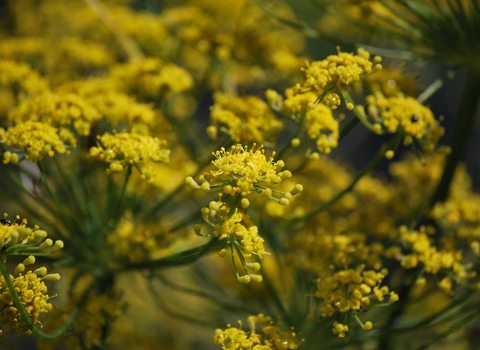
©Epicnom
Fennel
Fennel has feathery leaves and open, umbels of yellow flowers. It was probably introduced by the Romans for culinary use, and is now a naturalised species of verges, waste ground and sand dunes.
Scientific name
Foeniculum vulgareWhen to see
July to OctoberSpecies information
Category
Statistics
Height: up to 2mIntroduced, but naturalised species.
